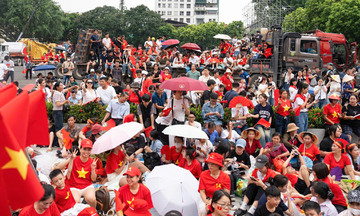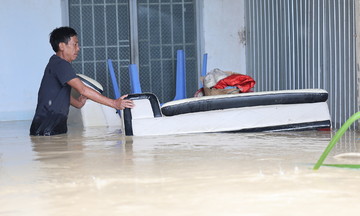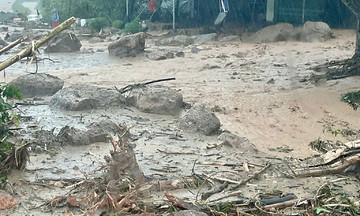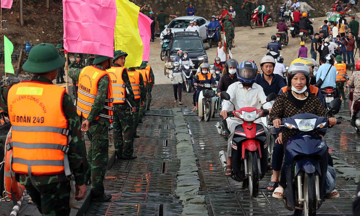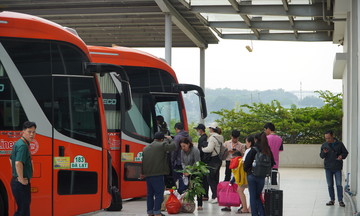At a recent Standing Committee of the National Assembly meeting, you mentioned the Committee requested a report from the Ministry of Education and Training on student adaptation to the new testing methods. What feedback has the Committee received?
This year's high school graduation exam, based on the 2018 General Education Program, brought positive changes with its new approach. The exam emphasized application, real-world connections, and content beyond textbooks. This made the exam more challenging for many students, even surprising some. However, focusing on assessing competency, rather than just knowledge, is a necessary trend.
The recently released score distribution shows the exam effectively differentiated test-takers. Without clear and accurate differentiation, universities would face difficulties in admissions, directly impacting higher education quality and the workforce.
The Committee for Culture and Social Affairs requested a report from the Ministry of Education and Training. After receiving the high school graduation exam results and expert evaluations, we will make recommendations. We also asked the Ministry to conduct further research and gather diverse opinions from experts and the public to improve the exam. The National Assembly agency will closely monitor to ensure fairness, transparency, and enhanced exam quality in the coming years.
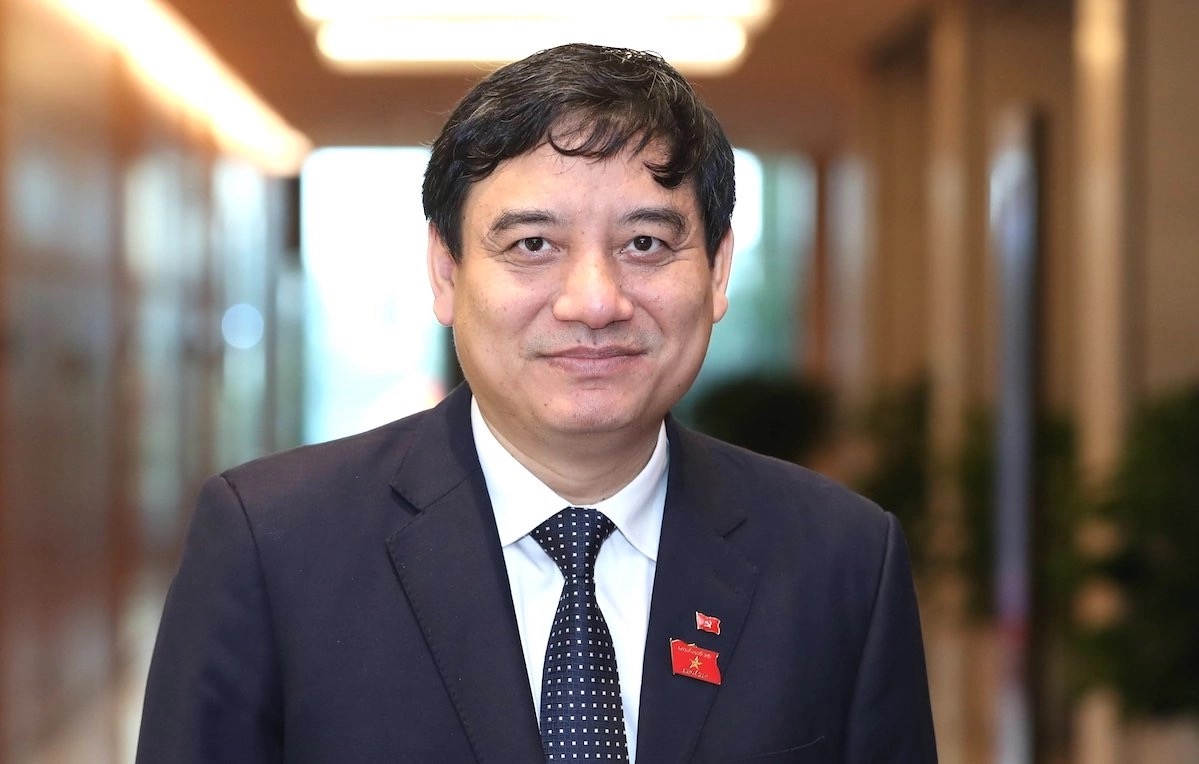 |
Mr. Nguyen Dac Vinh. Photo: Hoang Phong |
Mr. Nguyen Dac Vinh. Photo: Hoang Phong
The current education model emphasizes exams, forcing rote learning and mechanical test preparation. Society increasingly demands core competencies like problem-solving and creative thinking. What are your thoughts?
I agree. This persistent issue remains unresolved. A core reason is the focus on exams, with test results dictating teaching, learning, and assessment in schools. Consequently, students focus solely on high scores, and some teachers focus on test preparation, neglecting students' creative thinking development.
Following the Party's Resolution, education needs further reform for more practical and comprehensive teaching methods. Students should develop real competencies, life skills, and character, rather than striving solely for exam results. Testing, teaching, and learning should be harmonized to improve the national workforce.
With your years of experience in pedagogy, what changes in teaching methods should accompany exam content reform?
For substantial and sustainable educational reform, we must uphold reform principles and implement them effectively. Learning isn't just for exams; it's for accumulating knowledge, approaching problems logically and scientifically, developing character, fostering a humanistic worldview, promoting patriotism, and ensuring confident international integration. Learning should be connected to life, personal growth, and community contribution.
Improving English and other foreign language instruction is crucial in this strategy, making foreign languages effective tools for accessing global knowledge and enabling the younger generation to confidently integrate internationally. In today's world, foreign languages, especially English, are essential for effective communication across fields, benefiting individuals and the country.
Education needs to balance academics and extracurriculars, knowledge and skills, theory and practice, personal development and social responsibility. Curricula and schedules should be flexible to accommodate diverse learners, regional characteristics, and societal and technological changes.
I support allocating mornings for academics and afternoons for arts, physical education, soft skills, and supplementary knowledge. This is both feasible and essential for holistic student development. Following the Politburo's directive, all primary and secondary students will have two free daily sessions from the 2025-2026 school year. The second session will focus on arts, creative experiences, moral education, and social skills – creating a modern, friendly, and effective school model.
To achieve this, management and educational institutions require thorough preparation, including regulations on extracurricular activity duration and content; investing in facilities, functional rooms, grounds, and equipment for arts and sciences. For the second session, education should establish a flexible mechanism to involve experts, artisans, and athletes in teaching and guiding students.
Finally, changing parental and societal perceptions is crucial. We need to establish the importance of talent and soft skills alongside academics, contributing to well-rounded, happy citizens adapted to modern life.
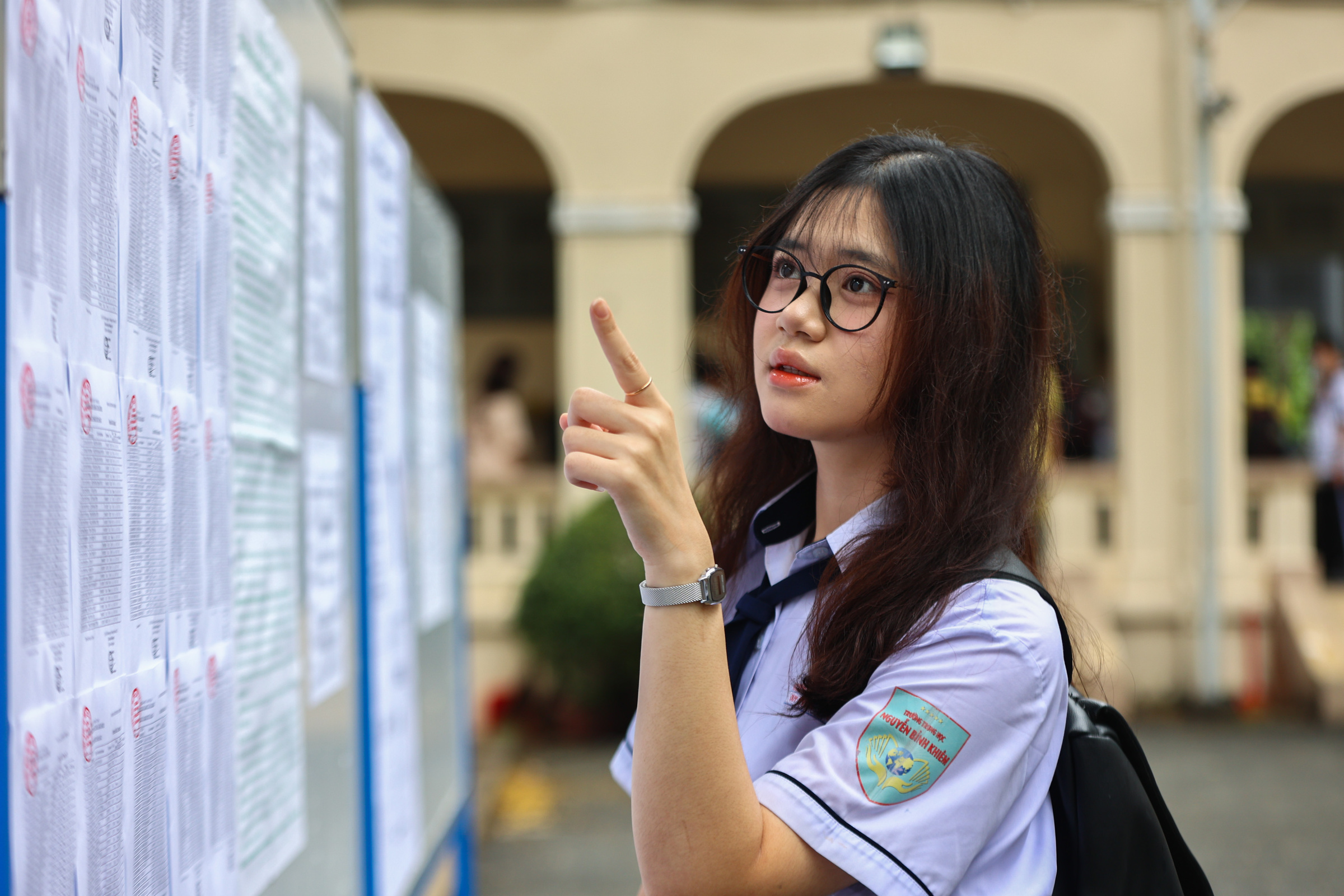 |
High school graduation exam takers in Ho Chi Minh City, 2025. Photo: Quynh Tran |
High school graduation exam takers in Ho Chi Minh City, 2025. Photo: Quynh Tran
In your role of policy oversight and recommendation, what solutions will the Committee for Culture and Social Affairs promote to help schools reform teaching, learning, and testing without focusing solely on achievements or putting undue pressure on students and teachers?
The Committee for Culture and Social Affairs will continue to closely monitor the implementation of the 2018 General Education Program, ensuring localities and schools embrace the reform spirit, avoiding formality and an overemphasis on academic results. We are also researching and recommending improvements to education laws, particularly amendments to the Education Law, the Higher Education Law, and the Vocational Education Law.
The Committee will also monitor the implementation of the Teachers' Law and recommend policies for the Ministry of Education and Training to care for, develop, and enhance the quality of teachers – the key to ensuring quality education.
We will also organize forums and seminars with experts, scientists, teachers, and parents to gather diverse opinions. This will inform practical policy recommendations toward education that fosters holistic development and student well-being.
With the special attention of the Party and the State, I believe education and training in Vietnam will see positive, substantial, and sustainable changes in the future.
Viet Tuan






